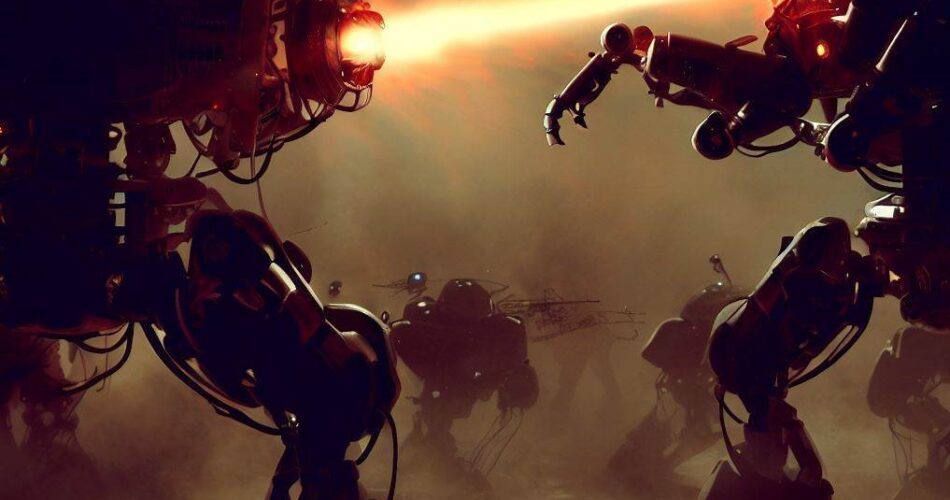AI will create a new kind of war
Technology has advanced at an incredible rate nowadays, and the field of war is no exception. We hear every day of new technology that will change warfare for the better, from hypersonic missiles and nanotechnology to space warfare using satellite-based lasers and biologically enhanced soldiers or robots.
We are captivated by how technology will offer us an advantage in conflict, particularly in the West. perhaps because it has always been but the West and its predecessors have almost always contributed higher levels of technology to the combat, whether it be hydrogen bombs or drone swarms. And for at least 500 years, this has made it possible for the West to ultimately prevail in most conflicts.
However, there are certain realities of war that you cannot wish away. For example, even the most advanced technology cannot make up for a lack of a strategy, low troop morale, or broken logistics.
According to this article, warfare will always be a psychological phenomenon and a phenomenon concerning people. When one side declares they have had enough of a war, the war will be inevitably won. Better tactics will always be used to win wars. The same dynamics of moving forward, moving backward, lying to your enemies, and inspiring terror in them will still be part of your strategy. Rather than being a technological activity, war will continue to be primarily a human emotional activity.
Technology won’t alter how war works but there could be a scientific advancement that will completely alter combat in the near future. I’m talking about AI.
Therefore, there won’t be any more decision-making by people. Machine brains will. While human brains usually win wars by employing techniques we are so accustomed to—bluff, advance, entrap, and deceive—AI might not do so.
These techniques are the result of brains that developed in a particular evolutionary setting, competing with other humans in social situations. We all experience the same kinds of emotions (more or less). We are all jealous, angry, arrogant, prideful, etc. The foundation of the strategy is these feelings and these techniques of mentally connecting with others.
We don’t know much about the future AI systems that will be managing wars, other than the fact that they will undoubtedly exist in this fiercely competitive human arena and that they will not resemble our human brains in any way. AI systems will have new ways of thinking. War’s fundamental psychology will vanish. The psychology that drives strategy is created by human brains that have evolved through human rivalry, which also creates the core of the conflict. However, these human brains have evolved to maximize survival and procreation, including the ability to form alliances, find food, water, and sexual partners, as well as to evade attacks.
Artificially intelligent war brains won’t aim to accomplish any of these things. Since AI’s sole objective will be to win the war (assuming it was programmed that way), the strategy it employs will take a completely different form. Because of this, applying AI to the battlefield could alter the nature of combat in ways that are unimaginable to humans. Possibly the most significant technological advancement in the history of conflict is artificial intelligence.
So, for the first time in the history of human civilization, the essence of warfare may change. Although AI making strategic decisions is currently (2023) unlikely to happen for a while, lower levels of automation are already being implemented.
Militaries are already developing and testing autonomous weapons systems, such as drones and loitering missiles (the US, for example, spends roughly $2 billion per year on this research) because, in comparison to humans, autonomous systems are much, much faster at making decisions, don’t get tired and need to sleep, and don’t end up as casualty statistics.
Autonomous systems will start to engage in conflict in a few years (or possibly even now, but that is yet unknown to us). And the dynamics that emerge from that conflict will show how war will develop in the future.
Artificial Intelligence will remove all human weaknesses from the warfare scenario, limiting the number of casualties where conflicts occur only between machines, but when they involve humans, there will be little chance of escape. Fatigue, distractions, and human needs are certainly weaknesses during a conflict, but they are also, at the same time, an element to be exploited to defeat the enemy and accomplish a mission. Therefore, in an AI-organized conflict, all of these could prolong conflicts or make them lethal to a greater extent.
